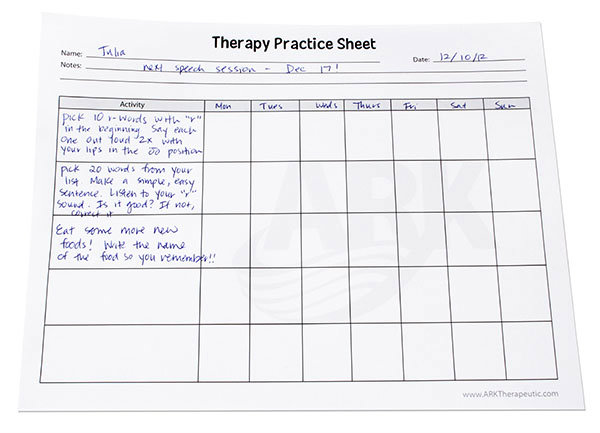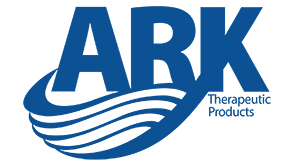Tips for Easier and More Effective Therapy Homework
Posted by Debra C. Lowsky, MS, CCC-SLP on 9th Jan 2013
I can't stress enough the importance of homework exercises. With consistent practice, children progress through their speech/feeding goals noticeably if not significantly faster. For example, I recently saw a child with an L distortion in a private school. She was four-years-old, and I knew the parents were very conscientious about her development. After providing a tactile cue, she was able to elevate her tongue to the alveolar ridge and produce the L sound. I provided her parents with information to work on at home. After a couple weeks of home practice, I checked her and found that the L in blends was developing. I’ll check her once again in a few weeks. Not only is this progress wonderful on its own, but it also means that her parents will be saving money.
Granted, most cases are not this simple. But home practice is advantageous across the board. Remember, I see my kids in therapy once a week, but parents see them every day! So, to make homework easier and more effective:
.
• Whatever tools I use in therapy, my parents have their own set at home. If money is a concern, a lot can be done at home with just ARK's Probe. It's a basic yet versatile tool that can be used for a variety of speech, feeding, oral motor, and sensory exercises.
• I show my parents exactly how to do each exercise. Then I have them repeat the exercise in front of me so I can correct them if necessary. Just like exercising any other muscles, it's important to have proper form.
• Never demand that the child do the exercise. In my experience, this causes anxiety and frustration for the child, which in turn creates an aversion to therapy where the child doesn't want any tool near his/her mouth. Always follow the child's lead. Proceed slowly and stop BEFORE he/she becomes overloaded. You can always try again later.
• To limit anxiety and frustration, I recommend starting with one practice session per day. Over time, you can work up to whatever the therapist prescribes. But in general, the more practice, the better.
• The same goes for the number of repetitions for each exercise. Start slowly, follow the child's lead, and stop before he/she becomes frustrated. Keep track of progress using a simple chart like the one pictured below. To print free blank copies of this chart, click here.
.

.
• Don't practice when the child is hungry or tired. It is also important for the parents to evaluate themselves as well. If they themselves are impatient, too tired, etc., then it is not a good time for therapy.
• Parents should try the exercise on themselves first to understand how the tool feels, to evaluate their pressure, etc.
• If the child is cognitive enough, a behavior modification program can be put in place for practicing with appropriate reinforcers. For example, you can set up a visual schedule to picture the activities and rewards. Be sure to establish a timeline and finish on time.
Debbie
Debra C. Lowsky, MS, CCC-SLP
.

